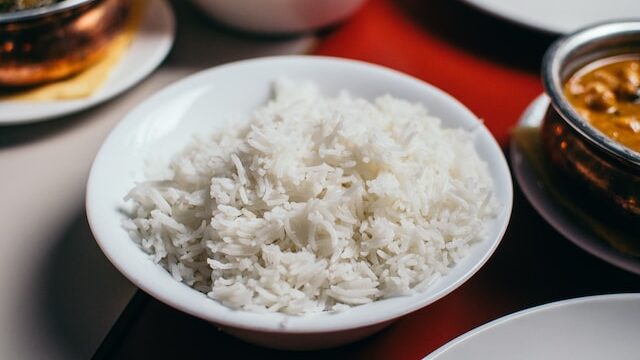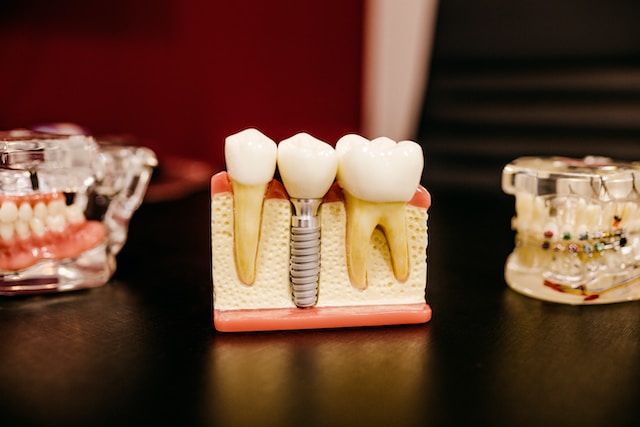Wisdom teeth removal is a common dental procedure that many people undergo. It is important to follow proper post-operative care to ensure a smooth recovery. One common concern after wisdom teeth removal is the diet. Patients often wonder what foods they can consume without causing any harm to their healing gums. Among the various food options, rice is a popular choice due to its soft texture and versatility. In this article, we will explore the question, “Can I eat rice after wisdom teeth removal?” and provide you with all the necessary information you need for a comfortable and satisfying post-surgery diet.
What to Expect Post-Wisdom Teeth Removal?
After wisdom teeth removal, here are some common things you can expect during the recovery period:
- Swelling and discomfort: Swelling around the extraction site is normal and may last for a few days. You may also experience some discomfort or mild pain.
- Bleeding: It’s normal to have some bleeding after the surgery. Bite down gently on a gauze pad to help control it. If bleeding persists, contact your dentist or oral surgeon.
- Limited mouth opening: You may have difficulty fully opening your mouth for a few days due to swelling and soreness.
- Facial bruising: Some bruising of the cheeks or jawline may occur, especially if impacted wisdom teeth were removed. It typically resolves within a week.
- Medication and pain management: Your dentist or oral surgeon may prescribe pain medication or recommend over-the-counter pain relievers to manage any discomfort.
- Dietary restrictions: Stick to a soft or liquid diet for the first few days. Avoid hard, chewy, or spicy foods that could irritate the extraction sites.
- Oral hygiene: Follow the dentist’s instructions for oral care. Gently rinse your mouth with warm saltwater starting 24 hours after the surgery, and continue regular brushing and flossing, avoiding the extraction sites.
- Rest and recovery: Get plenty of rest during the initial days after the procedure. Avoid strenuous activities and exercise that can increase bleeding or prolong healing.
- Swollen cheeks and jaw: Swelling of the cheeks and jawline is common. Applying a cold compress to the affected area during the first 24 hours can help reduce swelling.
- Follow-up appointments: Attend any scheduled follow-up appointments with your dentist or oral surgeon to ensure proper healing and address any concerns.
The Importance of Nutrition After Wisdom Teeth Removal
Proper nutrition plays a crucial role in the healing process after wisdom teeth removal. Following a nutritious diet helps promote tissue repair, reduce inflammation, and prevent complications. Consuming soft, nutrient-rich foods ensures that the body receives essential vitamins, minerals, and protein necessary for optimal healing. Adequate hydration is also essential to maintain overall health and prevent dry mouth. By following a balanced and nourishing diet, individuals can support the body’s healing process, minimize discomfort, and enhance recovery after wisdom teeth removal.
Post-Wisdom Teeth Removal Diet
Following wisdom teeth removal, it’s important to maintain a diet that supports healing and minimizes discomfort. Here are some dietary recommendations for the post-wisdom teeth removal period:
- Stick to soft foods: Choose foods that are soft and easy to chew or require minimal effort. Examples include mashed potatoes, cooked vegetables, yogurt, pudding, smoothies, soup (cooled to room temperature), and applesauce.
- Incorporate protein: Include protein-rich foods in your diet to aid in the healing process. Soft options include scrambled eggs, tofu, cottage cheese, and protein shakes or smoothies.
- Avoid spicy or acidic foods: Spicy or acidic foods can irritate the extraction sites and cause discomfort. It’s best to avoid them until your mouth has healed.
- Stay hydrated: Drink plenty of fluids to stay hydrated. Opt for water, room temperature or lukewarm beverages, and avoid using a straw as the suction can dislodge blood clots.
- Avoid chewing on the surgical sites: Be cautious not to chew directly on the extraction sites, as it can hinder healing. Chew on the opposite side of your mouth or choose foods that require minimal chewing.
- Gradually reintroduce solid foods: As you heal, gradually introduce more solid foods into your diet. Start with soft solids like pasta, well-cooked grains, and tender meats, and gradually progress to your regular diet as advised by your dentist or oral surgeon.
- Avoid small, hard, or sticky foods: Foods that are small, hard, or sticky, such as nuts, seeds, chips, popcorn, and sticky candies, should be avoided as they can irritate the surgical sites or become lodged in the extraction sockets.
- Follow any specific instructions: Your dentist or oral surgeon may provide additional dietary instructions based on your specific situation. Follow these instructions carefully for optimal healing.
Can I Eat Rice After Wisdom Teeth Removal?
Yes, you can eat rice after wisdom teeth removal, but it is important to consider a few factors.
It is crucial to ensure that the rice is well-cooked and not too sticky or dry, as these textures could potentially irritate the extraction sites or get stuck in the sockets. It is advisable to start with small portions of rice and gradually increase the quantity as your healing progresses.
It is always recommended to consult your dentist or oral surgeon for specific dietary instructions based on your individual case and healing progress. They can provide personalized guidance on when and how to incorporate rice and other foods into your post-wisdom teeth removal diet.

Benefits of Eating Rice After Wisdom Teeth Removal
- Soft Texture: Rice has a soft and mushy texture when properly cooked, making it easy to eat without exerting much pressure on your healing gums.
- Easily Digestible: After oral surgery, your digestive system may be sensitive. Rice is gentle on the stomach and can be easily digested, reducing the chances of any discomfort or digestive issues.
- Nutritional Value: Despite being soft and easy to consume, rice provides essential nutrients such as carbohydrates, vitamins, and minerals. It can help support your overall health and aid in the healing process.
- Versatility: Rice can be prepared in various ways, allowing you to experiment with flavors while still maintaining a soft consistency. Whether you prefer plain rice, rice porridge, or rice-based dishes, there are plenty of options to choose from.
When Can I Eat Rice After Wisdom Teeth Removal?
The timing of when you can eat rice after wisdom teeth removal may vary depending on your individual healing process. Generally, it is recommended to wait until the initial few days of recovery have passed before introducing rice into your diet.
It is best to consult with your dentist or oral surgeon for personalized guidance on when it is appropriate to include rice and other solid foods in your post-operative diet.
Preparing Rice for Post-Wisdom Teeth Removal Diet
When preparing rice for your post-surgery diet, it is important to ensure that the grains are thoroughly cooked and soft. Avoid using seasonings or spices that may irritate your healing gums. Here’s a simple recipe for soft rice that you can try:
Soft Rice Recipe
Ingredients:
- 1 cup of rice
- 2 cups of water
Instructions:
- Rinse the rice under cold water to remove excess starch.
- In a saucepan, combine the rinsed rice and water.
- Bring the water to a boil over medium heat.
- Reduce the heat to low, cover the saucepan, and let the rice simmer for 15-20 minutes or until the grains are tender.
- Once cooked, remove the saucepan from the heat and let the rice sit for a few minutes.
- Fluff the rice gently with a fork before serving.
What NOT to Do Post-Wisdom Teeth Removal?
After wisdom teeth removal, there are several things you should avoid to promote proper healing and prevent complications. Here are some important “do not” guidelines:
- Do not rinse or spit forcefully for the first 24 hours after surgery to avoid dislodging blood clots and interfering with the healing process.
- Do not use a straw when drinking liquids during the first few days as the suction can cause the blood clots to come loose.
- Do not smoke or use tobacco products as they can impair healing, increase the risk of infection, and delay the recovery process.
- Do not consume hot liquids or foods immediately after the surgery as they can aggravate the extraction site and cause discomfort.
- Do not consume alcoholic beverages for at least 24 hours or as advised by your dentist or oral surgeon, as alcohol can interfere with the healing process and interact with any prescribed medications.
- Do not engage in strenuous activities or exercise for a few days following the surgery to minimize the risk of bleeding and facilitate proper healing.
- Do not touch the surgical area with your fingers or tongue, as it can introduce bacteria and hinder the healing process.
- Do not neglect your oral hygiene routine. Continue brushing your teeth gently, but avoid the surgical areas, and refrain from using mouthwash during the initial days.
- Do not ignore any signs of infection, such as persistent pain, swelling, or fever. Contact your dental professional if you experience any concerning symptoms.
- Do not skip follow-up appointments. Attend all scheduled visits to your dentist or oral surgeon for proper monitoring of the healing process and to address any complications or concerns.
FAQs about Eating Rice After Wisdom Teeth Removal
1. Can I eat flavored rice after wisdom teeth removal?
It is recommended to avoid flavored rice, especially if it contains strong spices or seasonings. Stick to plain rice or mildly seasoned rice to prevent any irritation or discomfort.
2. Can I eat rice immediately after wisdom teeth removal?
It is generally recommended to wait until the anesthesia wears off and you feel more comfortable before consuming solid foods. Consult your dentist or oral surgeon for specific guidelines regarding your post-operative diet.
3. Can I eat rice if I have stitches after wisdom teeth removal?
Yes, you can eat rice even if you have stitches. Just ensure that the rice is thoroughly cooked and soft to prevent any irritation or damage to the stitches.
4. Is it necessary to rinse the rice before cooking?
Rinsing the rice before cooking helps remove excess starch and improves the texture of the cooked rice. It is recommended to rinse the rice under cold water until the water runs clear before cooking.
5. Can I eat fried rice after wisdom teeth removal?
Fried rice may not be the best option immediately after wisdom teeth removal. The crunchy vegetables and chewy meat may pose challenges and discomfort during the healing process. It is advisable to stick to soft and plain rice dishes.
6. How long should I wait before eating rice after wisdom teeth removal?
The timing may vary for each individual, and it is essential to follow your dentist’s or oral surgeon’s instructions. In general, it is best to wait until you are comfortable and have regained some jaw mobility before introducing rice into your diet.
Conclusion
In conclusion, rice can be a suitable choice for your post-wisdom teeth removal diet. Its soft texture, ease of consumption, and nutritional value make it an ideal food option during the healing process. Remember to cook the rice thoroughly, opt for mild seasonings, and avoid any foods that may cause discomfort or irritation. As always, consult your dentist or oral surgeon for personalized advice based on your specific condition. With proper care and a balanced diet, you’ll be on your way to a speedy recovery and enjoying your favorite foods again in no time.

